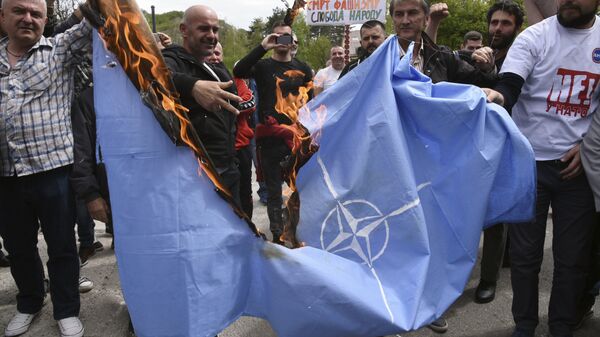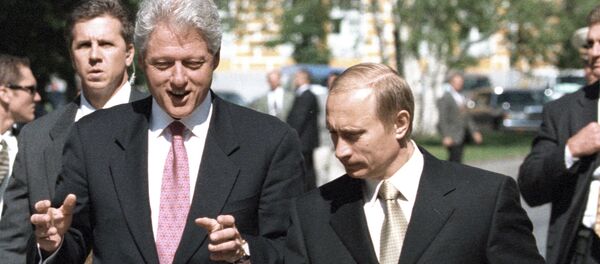Speaking to Stone in 'The Putin Interviews', an upcoming Showtime series on the Russian leader that's set to premiere later this month, Putin said that he had proposed the idea of Russia joining the Western alliance to Clinton in 2000 during his final visit to Moscow as president.
"I remember one of our last meetings with President Clinton in Moscow. During the meeting I said, 'we should consider an option that Russia might join NATO.' Clinton replied, 'Why not?'" Putin recalled. "But the US delegation got very nervous," he added, laughing as he recollected the moment.
In a separate interview with the filmmaker, Putin said that today, Russia sees NATO as "a mere instrument of US foreign policy," and a bloc which consists not of allies, "but only vassals."
Commenting on the president's remarks, Alexei Pushkov, a Russian senator who is known for his regular commentary on foreign affairs, indicated that it has long become clear that Russia will never be able to join the bloc.
"Russia's entry into NATO is impossible. NATO was created by the US for itself and against Russia – that is its essence. Russia's admission into NATO would mean the end of the alliance," Pushkov wrote in a post on his Twitter page.
Вступление России в НАТО невозможно. НАТО создана США для себя и против России - в этом суть. Прием России в НАТО означал бы конец альянса.
— Алексей Пушков (@Alexey_Pushkov) 3 июня 2017 г.
Prior to Putin's proposal to President Clinton in 2000, Moscow had actually made several attempts going back several decades to join the Western alliance. In the 1950s, shortly after NATO was founded, and before the Soviet Union set up the Warsaw Pact, Moscow proposed joining the alliance and turning it into an organization to ensure European security. Western leaders, mistrustful of Soviet intentions, refused.
Throughout the 1990s and 2000s, before the crisis in Russia-NATO relations in 2014 over the crisis in Ukraine, several more intimations were made that Moscow might eventually join the alliance, but nothing ever progressed beyond remarks by individual leaders, both Russian and Western.
Throughout the late 1990s and early 2000s, NATO expanded into Eastern Europe, eventually incorporating the entire former Warsaw Pact and some republics of the former Soviet Union. Since 2014, the alliance has used the Ukrainian crisis as a pretext to dramatically beef up its presence in Eastern Europe, including Poland, Romania, and the Baltic States, all the while accusing Russia of having aggressive intentions.



